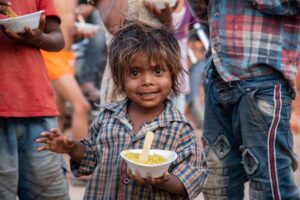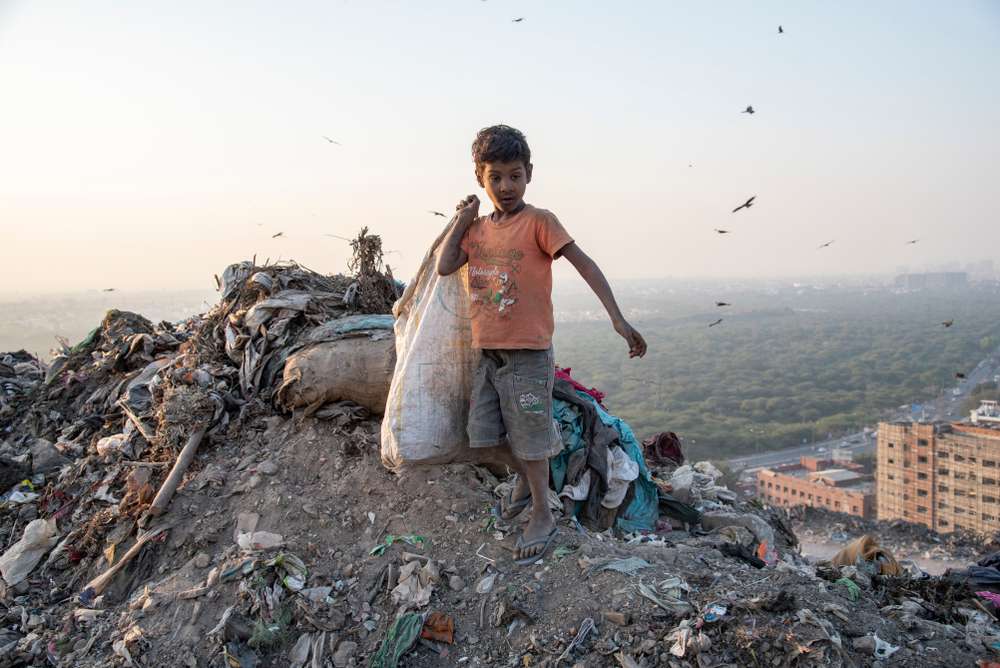Introduction: The Evolution of Graduation Approach

The Graduation Approach (GA) has proven to be a sustainable solution for building and safeguarding the livelihoods of those entrenched in extreme poverty. Originating from the Bangladeshi NGO BRAC, GA is an intensive, holistic strategy that combines various elements, such as cash support, asset transfers, training, mentoring, savings, and health care linkages. Over time, organizations have adapted GA, moving towards a broader goal of economic inclusion. Efforts to leverage existing government services and market opportunities in GA programs have been successful, connecting, strengthening, and supplementing poverty alleviation initiatives.
Expanding the Horizon: GA Beyond Extreme Poverty
While GA has found success in extreme poverty scenarios, its potential applicability to contexts beyond extreme poverty has received limited attention. This article explores the uncharted territory of forced relocation, where complex factors jeopardize livelihoods due to climate change, infrastructure projects, or other disruptive forces compelling people to permanently leave their homes.
Lessons from Guinea: Applying GA to Rebuild After Relocation
Drawing insights from a two-year pilot in Guinea, this article sheds light on the applicability of the Graduation Approach in rebuilding the livelihoods of a community relocated due to mining activities. Implemented by a local non-governmental organization on behalf of the mining company, the project showcased innovative adaptations of GA to address the challenges posed by forced relocation. The anonymity of the community and organizations involved is preserved for confidentiality.
Adapting GA to Relocation Context
The relocated community in Guinea, initially thriving around a downtown market area, faced the challenge of rebuilding their livelihoods five kilometers away from the town center due to mining-related relocation. The project aimed to assist this community in rebuilding and expanding their economic activities in the new location. Although not in extreme poverty, many community members struggled to establish new livelihoods, lacking familiarity with market conditions, essential skills, and social networks.
Tailored Approaches: Targeting the Whole Community
In response to the diverse needs of the community, the project adapted GA in three key ways. Firstly, it targeted the entire relocated community, deviating from the conventional focus on the “extreme poor.” Secondly, it adjusted activities to address the wider range of economic and social profiles within the community. A “business support component” specifically catered to those with larger businesses, requiring a less holistic approach. Thirdly, the project focused on market strengthening and community integration, constructing a marketplace to attract outsiders and boost economic activity.
Leveraging GA for Complex Challenges
The Graduation Approach, designed to address the multi-dimensional nature of poverty, identifies constraints and opportunities for targeted populations. While traditionally implemented in refugee/displaced persons contexts, the forced relocation of a community presented a new setting for GA. The Guinea project generated lessons on how GA can be leveraged to address the complexities of relocation, emphasizing the challenges posed by being in a new location.
Challenges and Lessons: Tailoring Support to Different Needs
Implementing GA for an entire relocated community highlighted the importance of tailoring support to different needs. While a standard set of interventions is typically designed for the most vulnerable members in a community, the relocated community demonstrated greater divergence in experience, needs, and capacity. Segmentation of the target community and adjustment of support intensity emerged as crucial components. Communication challenges and mistrust, arising from the relocation process, underscored the importance of building trust between the community and the involved entities.
Psychosocial Impacts and Building Trust
In GA programs focused on community relocation, relationships with project staff and the company instigating the relocation become critical. Negative impacts of relocation, leading to a sense of entitlement among community members expecting compensation, posed challenges to GA’s intended focus on self-reliance. Effective communication and ongoing efforts to build community understanding and trust, facilitated by mentors regularly engaging with households, played a pivotal role in overcoming these challenges.
Conclusion: GA Beyond Extreme Poverty
In the unfolding narrative of a two-year pilot project in Guinea, the application of a “Graduation lens” reveals its profound value in addressing complex livelihood challenges that extend beyond the conventional boundaries of extreme poverty. This initiative, conducted by a local non-governmental organization (NGO) on behalf of a mining company, stands as a testament to the adaptability and versatility of the Graduation Approach (GA). By delving into the nuances of rebuilding a community’s livelihood post-relocation due to mining activities, the project underscores the broader potential of the GA in contexts shaped by diverse challenges, including those triggered by infrastructure projects or the far-reaching impacts of climate change.
Guinea, with its rich mining landscape, provided the backdrop for a transformative journey. The GA, originally crafted as a response to extreme poverty, flexes its capabilities to navigate the multifaceted challenges posed by forced community relocation. In doing so, the project reframes the GA’s narrative, demonstrating that its principles can be harnessed to empower communities facing upheaval, irrespective of the specific triggers. It becomes a dynamic tool, evolving beyond its traditional scope to become an agent of change in scenarios where livelihoods are disrupted, and resilience is paramount.
The community’s forced relocation, an outcome of mining activities, serves as a microcosm of broader challenges faced by communities globally. The GA, with its multidimensional approach, extends its reach to encompass the intricacies of rebuilding livelihoods in unfamiliar territories. This expansion of focus, beyond the stereotypical lens of “extreme poverty,” reflects a nuanced understanding of the diverse economic and social landscapes that shape displaced communities. The project pioneers the inclusion of a “business support component,” recognizing the varied needs of those with larger businesses, thereby challenging the conventional segmentation inherent in GA initiatives.
As the project unfolds, it becomes evident that the GA is not a one-size-fits-all solution but a malleable framework that can be tailored to diverse needs. The creation of a marketplace, a collaborative endeavor with the mining company, emerges as a symbol of the GA’s commitment to market strengthening and community integration. This innovation goes beyond poverty alleviation, signaling the GA’s potential role in fostering economic inclusion, revitalizing local markets, and establishing sustainable economic bases in the face of relocation-induced challenges.
In conclusion, the Guinea pilot project casts the Graduation Approach in a new light. It transcends its initial purpose, proving to be a versatile and innovative tool capable of rebuilding livelihoods and fostering economic inclusion in contexts far removed from traditional extreme poverty scenarios. The GA, with its adaptability and resilience, emerges as a beacon of hope for communities grappling with displacement, offering a transformative lens through which to envision and realize a sustainable and resilient future.

Related Topics:
- “Maximizing Business Efficiency: 5 Strategies to Ensure Optimal Organization and Success” –
- Navigating the Waves of Change: The Environmental Benefits of Sustainable Innovations in the Cruise Industry –
- MEDIA James Gorman talks Disney succession, proxy fight as he gears up to join board
- Oil drops as Angola announces OPEC exit
